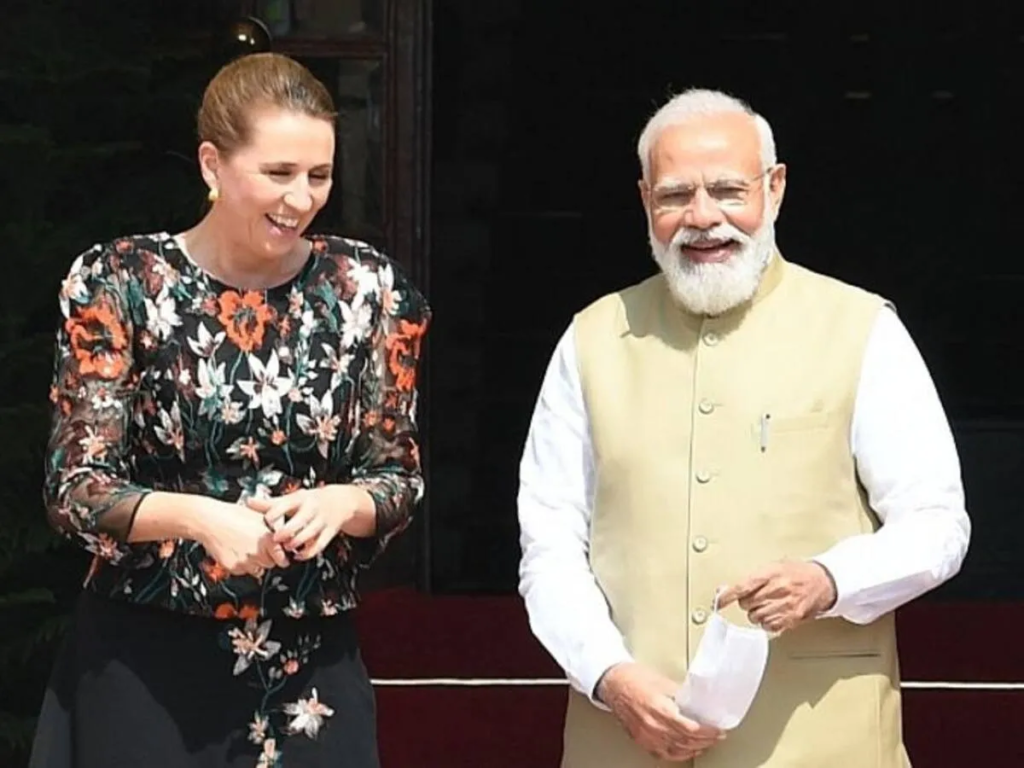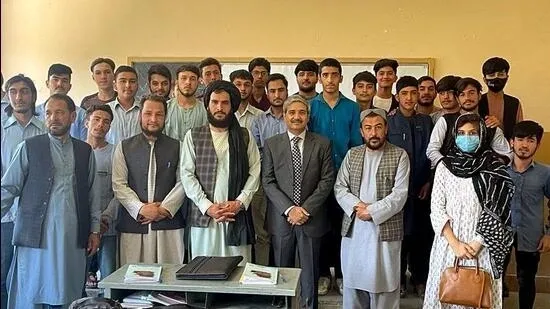
By Professor Habib Al-Badawi
As the United States approaches the 2024 presidential election, the political landscape is rife with speculation and anticipation. Recent polls indicate a potential return to the Oval Office for former President Donald Trump, a prospect that has galvanized both supporters and critics. Against this backdrop, Project 2025 has emerged as a focal point of intense political debate and scrutiny.
Project 2025, a transition plan meticulously crafted by the Heritage Foundation and its conservative allies, presents itself as a comprehensive blueprint for conservative governance. This voluminous 922-page document proposes a radical reimagining of the federal government, advocating for an expansion of presidential powers and a fundamental restructuring of the civil service. Its ambition and potential implications have catapulted it to the forefront of political discourse.
While former President Trump has publicly sought to distance himself from Project 2025, the involvement of many of his close policy advisers in its development has raised questions about its potential influence on a future Trump administration. The campaign of incumbent President Joe Biden has seized upon the project, framing it as evidence of what they characterize as authoritarian and far-right policies that could be implemented should Trump return to office.

This paper aims to provide a comprehensive and objective analysis of Project 2025. Through a careful examination of its key policy proposals, we will explore the project’s vision for America’s role in the world and investigate the ideological underpinnings driving its agenda. Furthermore, we will delve into the project’s connections to the Trump campaign and assess its potential impact on the discourse surrounding the 2024 election.
By offering a scholarly perspective on this contentious document, this study seeks to contribute to a more informed public debate about the potential future direction of American governance and policy.
- Key Domestic Policy Proposals
Project 2025 outlines a series of conservative policy initiatives aimed at fundamentally reshaping various aspects of American society. These proposals reflect a vision of governance that prioritizes traditional values, limited government intervention in certain areas, and a rollback of progressive policies implemented in recent years.
- Immigration Reform: The project advocates for a stringent approach to immigration, aligning closely with the hardline stance previously adopted by the Trump administration. Key proposals include:
These proposals represent a significant departure from current policies and would likely face substantial legal and logistical challenges if implemented.
- Education: Project 2025 envisions a dramatic restructuring of the American education system, with a focus on decentralization and the promotion of conservative values. Key recommendations include:
- Eliminating the Department of Education and transferring most of its functions to state and local authorities.
- Expanding school choice programs, including vouchers and charter schools.
- Limiting federal involvement in curriculum development, particularly regarding topics such as LGBTQ issues and critical race theory.
- Promoting “traditional” values in education and protecting parental rights in educational decision-making.
These proposals align with long-standing conservative critiques of the federal role in education and could significantly alter the landscape of American public schooling.
- Social Policy: The document outlines a conservative approach to social issues, advocating for policies that would significantly restrict certain personal freedoms while expanding others. Notable proposals include:
- Banning pornography at the federal level, citing concerns about its societal impact
- Expanding gun ownership rights and limiting gun control measures
- Prosecuting individuals involved in providing or distributing abortion pills by mail.
- Reversing the FDA approval of mifepristone, a medication used in medical abortions.
- Strengthening religious freedom protections, particularly for conservative Christian viewpoints
These proposals reflect a desire to reshape American society along more conservative lines and would likely face significant opposition from civil liberties groups and progressive activists.
- Family and Gender Issues: Project 2025 places a strong emphasis on promoting traditional family structures and gender roles. Key recommendations in this area include:
- Encouraging policies that support stay-at-home parenting and larger families.
- Limiting legal recognition and protections for LGBTQ individuals
- Officially recognizing marriage as solely between one man and one woman
- Restricting transgender rights, particularly in areas such as healthcare and sports participation
The project frames these proposals as necessary for “restoring the family as the centerpiece of American life,” reflecting a conservative vision of social organization that stands in stark contrast to contemporary trends towards greater LGBTQ acceptance and family diversity.
- Foreign Policy and National Security
Project 2025 outlines a robust and assertive approach to foreign policy and national security, emphasizing American strength and independence on the global stage. The proposals in this section reflect a significant shift from current policies and would likely reshape America’s international relationships and commitments.
- China Strategy: The project identifies China as the preeminent threat to American security and prosperity, advocating for a comprehensive strategy to counter Chinese influence. Key proposals include:
- Countering Chinese technological advancements through increased investment in American research and development
- Encouraging U.S. allies to take a more active role in regional security, particularly Japan and South Korea
- Enhancing support for Taiwan, potentially including formal diplomatic recognition
- Implementing more aggressive economic measures against China, including tariffs and investment restrictions
- Strengthening the military presence in the Indo-Pacific region to deter Chinese expansion.
This approach represents a significant escalation of current tensions with China and could potentially lead to increased global instability.
- Nuclear Weapons Policy: Project 2025 advocates for a substantial expansion and modernization of the U.S. nuclear arsenal, reversing decades of arms control efforts. Specific proposals include:
- Accelerating the development and deployment of the Sentinel intercontinental ballistic missile system
- Developing new types of nuclear weapons, potentially including low-yield tactical nuclear weapons
- Modernizing and expanding nuclear capabilities across all delivery systems (land, sea, and air)
- Resuming nuclear weapons testing at the Nevada National Security Site, in contravention of the Comprehensive Nuclear-Test-Ban Treaty
These plans reflect a belief in the continued relevance of nuclear deterrence and could potentially trigger a new global arms race.
- International Aid Reform: The project calls for a fundamental overhaul of U.S. international aid programs, particularly targeting the U.S. Agency for International Development (USAID). Key recommendations include:
- Dismantling diversity, equity, and inclusion (DEI) initiatives within USAID and other international aid programs
- Refocusing aid programs away from what the project terms “woke ideas” towards more traditional development goals.
- Removing references to gender equality, reproductive health, and related terms from USAID communications and programs
- Tying aid more closely to U.S. strategic interests and recipient countries’ support for U.S. policies
These changes would represent a significant shift in the goals and methods of U.S. international aid, potentially altering America’s soft power influence around the world.
- Middle East Policy: Project 2025 advocates for a return to a more interventionist approach in the Middle East, with a focus on containing Iran and supporting traditional U.S. allies in the region. Key proposals include:
- Expanding military support for Israel and Gulf Arab states
- Maintaining a significant U.S. military presence in the region to counter Iranian influence.
- Promoting the Abrahamic Accords and encouraging further normalization of relations between Israel and Arab states
- Withdrawing from the Iran nuclear deal and implementing stricter sanctions
This approach would mark a departure from recent efforts to reduce U.S. involvement in the Middle East and could potentially lead to increased regional tensions.
- Government Administration and Presidential Power
Project 2025 proposes sweeping changes to the structure and function of the federal government, with a particular emphasis on expanding presidential authority and reshaping the civil service.
- Civil Service Restructuring: The project advocates for a significant overhaul of the federal workforce, aiming to increase political control over government agencies. Key proposals include:
- Expanding the number of political appointees in government, potentially reclassifying up to 50,000 civil service positions as political appointments
- Implementing measures to remove perceived ideological opponents from the civil service, including the creation of new mechanisms for terminating federal employees.
- Increasing presidential authority over the Justice Department, potentially allowing for more direct control over investigations and prosecutions
- Reducing the influence of public sector unions in government operations
These changes would represent a fundamental shift in the nature of the federal workforce and could potentially lead to increased politicization of government agencies.
- Regulatory Reform: Project 2025 proposes a dramatic reduction in federal regulations across a wide range of policy areas. Specific recommendations include:
- Expanding cost-benefit analysis requirements for new regulations and retroactively applying these standards to existing regulations
- Implementing a “one-in, two-out” rule for new regulations, requiring the elimination of two existing regulations for every new one introduced
- Overhauling or dismantling federal agencies seen as hindering conservative policy goals, such as the Environmental Protection Agency and the Consumer Financial Protection Bureau
- Sweeping elimination of environmental regulations, particularly those related to climate change mitigation.
These changes would significantly alter the regulatory landscape in the United States, potentially leading to substantial changes in areas such as environmental protection, consumer rights, and workplace safety.
- Executive Power Expansion: The project advocates for a broad expansion of presidential authority, arguing that this is necessary to overcome bureaucratic resistance to conservative policies. Key proposals include:
- Expanding the concept of executive privilege to shield more White House activities from congressional and judicial oversight.
- Expanding the use of executive orders to implement policy changes without congressional approval.
- Increasing presidential control over independent agencies, potentially including the ability to fire agency heads at will.
- Limiting the ability of courts to issue nationwide injunctions against executive actions.
These changes would represent a significant shift in the balance of power between the executive branch and other parts of the government, potentially raising constitutional concerns.
- Relationship to the Trump Campaign
While the Trump campaign has officially distanced itself from Project 2025, there are numerous connections between the project and individuals associated with the former president:
- Key figures involved in the project, such as Paul Dans (former chief of staff at the U.S. Office of Personnel Management) and John McEntee (former director of the White House Presidential Personnel Office), have expressed intentions to serve in a potential second Trump administration.
- Partner organizations include conservative groups with close ties to Trump’s campaign, such as the Center for Renewing America and America First Legal.
- Thirty-one out of thirty-eight contributors to the project served in Trump’s previous administration or transition team, suggesting a high degree of ideological alignment.
These connections suggest that, despite official denials, Project 2025 could serve as a significant blueprint for a potential second Trump administration. The overlap in personnel and ideological alignment indicates that many of the project’s proposals could find their way into official policy if Trump were to return to office.
- Political Impact and Controversy
Project 2025 has become a lightning rod for political debate, serving as both a rallying point for conservatives and a source of alarm for progressives and moderates.
- Conservative support: Many conservative politicians and commentators have praised Project 2025 as a comprehensive plan to implement long-standing conservative policy goals. Supporters argue that the project represents:
- A blueprint for reducing the size and scope of the federal government.
- A necessary corrective to perceived overreach by progressive administrations.
- A roadmap for promoting traditional values and American interests both domestically and internationally.
- Progressive and Moderate Opposition: Critics of Project 2025, including the Biden campaign and many Democratic politicians, have characterized the project as:
- A potential blueprint for authoritarian governance
- A threat to democratic norms and individual rights
- An extreme and unrealistic set of policy proposals that would harm vulnerable populations.
- The Biden campaign has launched several initiatives to raise awareness about Project 2025, including:
- Creating a dedicated webpage highlighting what they see as the most concerning aspects of the project.
- Incorporating criticism of Project 2025 into campaign speeches and messaging
- Launching billboard campaigns in major cities to draw attention to the project’s proposals.
- Legal and Constitutional Concerns: Several aspects of Project 2025 have raised legal and constitutional concerns among scholars and civil rights organizations. These include:
- Plans to reshape the civil service, which could potentially violate federal employment laws.
- Proposals to expand presidential power, which some argue could upset the constitutional balance of powers.
- Social policy proposals that may infringe on individual rights protected by the Constitution.
The American Civil Liberties Union and other civil rights organizations have indicated that they would likely challenge many of Project 2025’s proposals in court if they were implemented.
- Potential Impact on the Arab World
The implementation of Project 2025’s proposals could have far-reaching consequences for the Arab world, potentially reshaping U.S.-Arab relations, and regional dynamics. This section examines the possible effects across various domains:
- Recalibration of Middle East Strategy: Project 2025 advocates for a more assertive and interventionist approach in the Middle East, which could lead to:
- A substantial increase in the U.S. military footprint across the region, reminiscent of pre-Obama era deployments
- Adoption of a markedly more confrontational posture towards Iran, potentially exacerbating existing tensions and raising the specter of conflict
- Reinforced alliances with traditional U.S. partners, particularly Israel and Gulf Arab states, could potentially alter regional power dynamics.
- Transformation of the International Aid Landscape: The proposed radical overhaul of USAID and affiliated programs could profoundly impact Arab nations receiving U.S. assistance.
- Dramatic reduction or complete elimination of initiatives focused on gender equality, reproductive health, and women’s empowerment.
- Significant diminution of emphasis on democracy promotion and human rights advocacy in aid programs, potentially emboldening authoritarian tendencies
- Strategic realignment of aid priorities, potentially leveraging assistance as a tool for advancing U.S. geopolitical interests
- Acceleration of Regional Normalization: The project’s staunch support for expanding the Abrahamic Accords could catalyze a seismic shift in regional alliances and diplomatic relations.
- Possible marginalization of Palestinian concerns in the pursuit of broader regional agreements
- Potential pressure on reluctant Arab states to normalize ties with Israel.
- The reshaping of long-standing regional alliances and the emergence of new geopolitical blocs
- Economic Ripple Effects: Potential shifts in U.S. trade and economic policies could reverberate through Arab economies.
- Possible implementation of protectionist measures affecting trade relationships with Arab nations
- Potential impact on foreign direct investment flows between the U.S. and Arab countries
- Renegotiation of existing trade agreements to align with “America First” principles.
- Tightening of Immigration and Refugee Policies: The project’s advocacy for stricter immigration controls could have far-reaching consequences.
- More stringent vetting processes for Arab immigrants and students seeking to enter the United States
- Possible recalibration of temporary worker programs affecting Gulf State nationals
- Potential reduction in refugee resettlement quotas, affecting displaced populations from Syria, Iraq, and other conflict zones.
- Shifting Energy Paradigms: Changes in U.S. energy policy and climate change stance could significantly impact oil-producing Arab nations.
- Possible resurgence of U.S. oil and gas production, potentially impacting global energy markets and OPEC strategies
- Potential rollback of climate change commitments, affecting global efforts to transition away from fossil fuels.
- Reconsideration of renewable energy partnerships and technology transfer initiatives with Arab states
- Cultural Diplomacy Reorientation: The project’s emphasis on “traditional values” could reshape U.S. cultural engagement in the Arab world.
- Potential scaling back of programs promoting liberal social values or LGBTQ+ rights.
- Possible emphasis on religious freedom initiatives, particularly focusing on Christian minorities in the region.
- Recalibration of educational and cultural exchange programs to align with conservative American values.
Accordingly, as we examine the geopolitical landscape of the 21st century, Project 2025 provides a significant framework for analyzing potential shifts in conservative policy and their global implications. This comprehensive set of proposals, whether implemented fully, partially, or serving primarily as a topic of debate, highlights several key tensions in contemporary politics: balancing traditional and progressive values, negotiating isolationist and interventionist approaches, and adjusting to evolving international power dynamics.

The Arab world, given its strategic importance and complex geopolitical position, may experience substantial effects from the policy changes proposed in Project 2025. These potential impacts could extend beyond diplomatic relations, possibly altering regional political, economic, and social structures. The proposed changes to alliances and international aid strategies could significantly influence power dynamics across the Middle East and North Africa.
In our interconnected global environment, understanding initiatives like Project 2025 is crucial for both American voters and the international community. Analyzing these proposals offers insights into potential future scenarios, facilitating more informed policy discussions and decision-making processes.
The upcoming 2024 U.S. presidential election is likely to intensify discussions around Project 2025, bringing its proposals to the forefront of national and international debate. Regardless of their implementation, these ideas may significantly influence political discourse and policy considerations both within the United States and globally. The proposals raise important questions about America’s global role, domestic priorities, and the balance between national interests and international obligations.
Policymakers, scholars, and citizens face the challenge of carefully considering these potential changes, weighing their far-reaching implications. This requires balancing national objectives with global responsibilities within an increasingly complex international system.
The debates surrounding Project 2025 present an opportunity to reevaluate policy priorities, examine shared values, and reconsider international partnerships. This process necessitates consideration of diverse perspectives, from government officials to citizens across various nations and socioeconomic backgrounds.
The effectiveness of these policy proposals will ultimately be judged on their ability to address current global challenges while promoting stability and prosperity. The ongoing analysis and debate of Project 2025 contribute to a broader discussion that may shape both U.S. politics and the global order in the coming years.
Finally, Project 2025 serves as both a potential roadmap and a subject for critical analysis, underscoring the complexities of policy making in a rapidly changing global environment.
Project 2025 represents a comprehensive and ambitious conservative vision for governance that aligns closely with many of former President Trump’s policy priorities. While the Trump campaign has officially distanced itself from the project, the involvement of numerous former Trump administration officials and its alignment with many of Trump’s known policy preferences suggest that it could significantly influence a potential second Trump administration.
The project’s proposals for dramatic changes in domestic policy, foreign relations, and government administration have sparked intense debate across the political spectrum. Supporters argue that it represents a necessary overhaul of federal governance and a return to traditional American values. Critics contend that it poses significant risks to democratic norms, individual rights, and America’s standing in the world.
As the 2024 election approaches, Project 2025 is likely to remain a significant element of political discourse, serving as both a blueprint for conservative governance and a rallying point for opposition. Its proposals touch on nearly every aspect of American life and governance, from social policy to international relations, and its implementation would represent a seismic shift in the direction of the country.
The debate surrounding Project 2025 reflects broader tensions in American society regarding the proper role of government, the balance between tradition and progress, and the future direction of the nation. As such, it serves as a valuable lens through which to examine the current state of American politics and the potential trajectories of governance in the coming years.
Further research is needed to fully assess the potential impacts of these proposals on American governance and society. Scholars, policymakers, and citizens alike would benefit from in-depth analyses of the legal, economic, and social implications of Project 2025’s recommendations. Additionally, comparative studies examining similar policy proposals in other countries could provide valuable context for understanding the potential outcomes of implementing such a comprehensive conservative agenda.
Ultimately, the fate of Project 2025 and its proposals will likely be determined by the outcome of the 2024 election and the ensuing political battles. Regardless of its eventual impact on policy, however, the project has already played a significant role in shaping the contours of political debate in the United States, underscoring the deep ideological divisions that continue to characterize American politics in the early 21st century.



